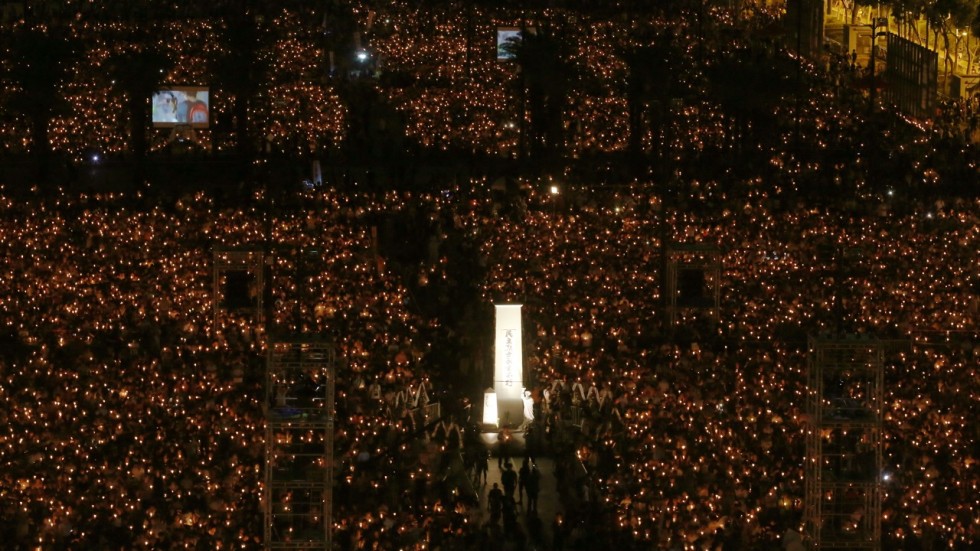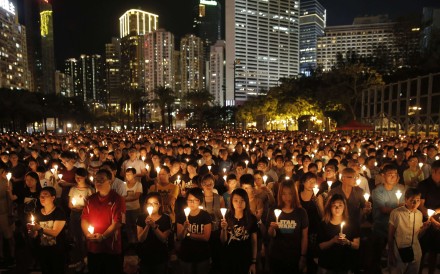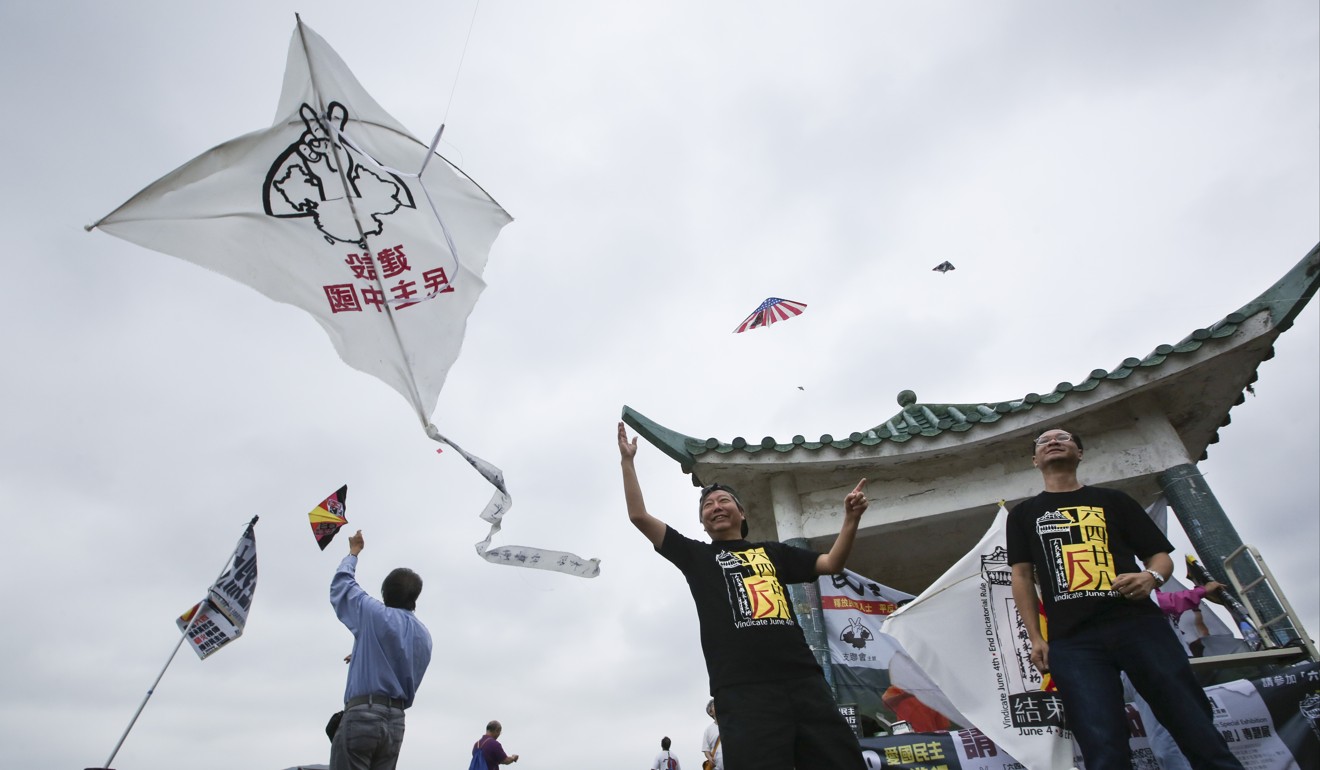The U.S. should do its part to protect the city’s vibrant democratic culture
By GEORGE F. WILL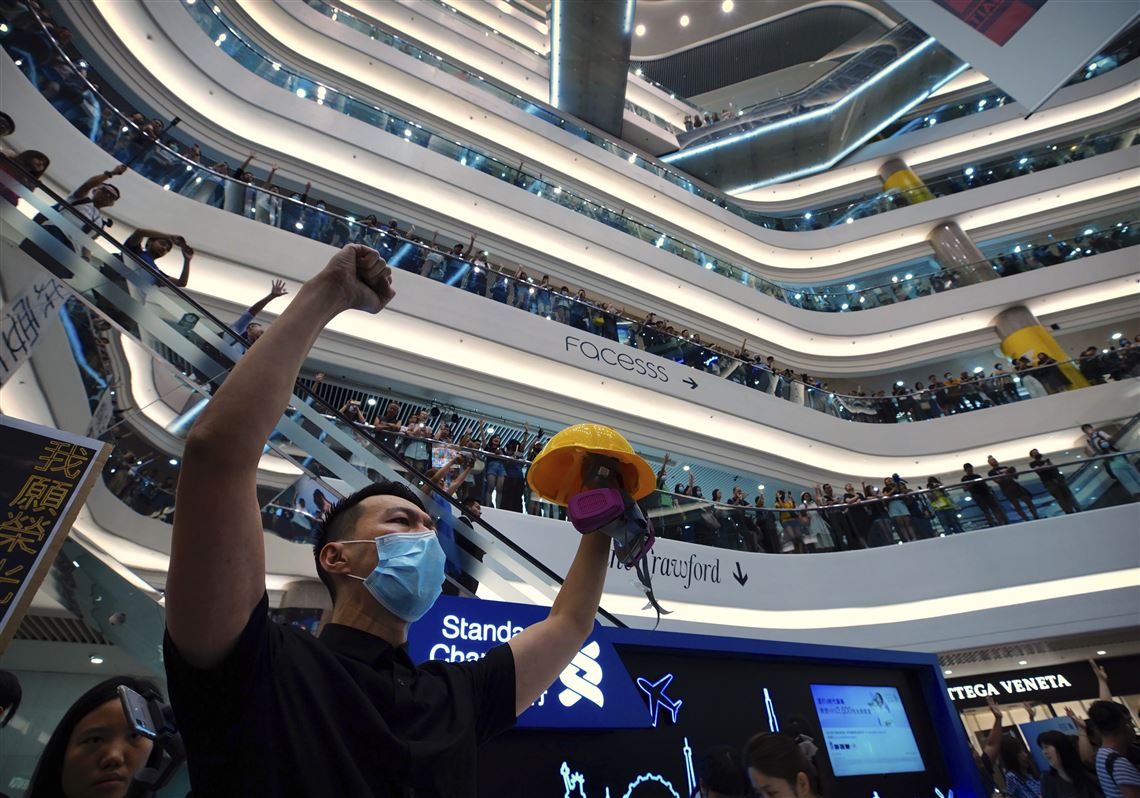
Lee Cheuk-yan, unlike most Americans, remembers and reveres Lane Kirkland, a hero of the first Cold War.
During 16 years as leader of the AFL-CIO, 1979-1995, Kirkland gave crucial support, both material and moral, to Lech Walesa and the Solidarity movement in Poland, where it was an early tremor in the political earthquake that ended European communism.
In Hong Kong, an island city at the other end of the Eurasian land mass, a city that has become a flashpoint in Cold War 2.0, Mr. Lee is lending support to a fluid, shapeshifting protest movement that has no Lech Walesa.
This lack is a strength and a weakness.
This lack is a strength and a weakness.
The movement has no leader with whom the local government, which is an appendage of Beijing and hence of the Chinese Communist Party, might negotiate.
Fortunately, however, a movement without a head cannot be easily decapitated, which otherwise probably would be Beijing's default position.
This thought experiment became the premise of a 2018 novel (Chloe Benjamin's "The Immortalists"): If you knew when you were going to die, how would this change how you choose to live?
This thought experiment became the premise of a 2018 novel (Chloe Benjamin's "The Immortalists"): If you knew when you were going to die, how would this change how you choose to live?
Hong Kong's young people, from whom come most of the demonstrations' participants and energy, know that the clock is ticking for their city.
It is 22 years into what was supposed to be a 50-year grace period.
In 1997, Britain ended 156 years of responsibility for Hong Kong, transferring it to China.
So, just eight years after the Tiananmen massacre, there began what was supposed to be half a century of Hong Kong's exceptionalism preserved, after which the city might be gracefully melded with a mellowed mainland.
So, just eight years after the Tiananmen massacre, there began what was supposed to be half a century of Hong Kong's exceptionalism preserved, after which the city might be gracefully melded with a mellowed mainland.
Just 22 years later, this hope has been as refuted as the 1989 hope that the massacre would be followed by a less authoritarian, because more secure, Beijing regime.
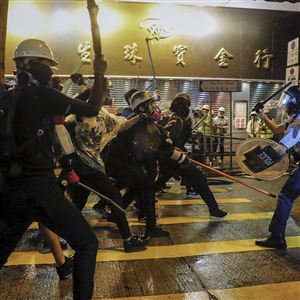
Mr. Lee was in a hotel overlooking Tiananmen Square when the tanks rolled in.

Mr. Lee was in a hotel overlooking Tiananmen Square when the tanks rolled in.
He later organized Hong Kong's memorial museum, which is overseen by the same organization that facilitates commemorations every June 4.
As a human bridge between the first Cold War and the next one, he knows that this city today is not like East Berlin in 1953, or Budapest in 1956, or Prague in 1968.
In those places, people who were in despotism's firm grip rebelled and quickly learned how firm the grip was.
Hong Kong is spectacularly vibrant and prosperous because it perennially — since 1970 — holds the top position in the Economic Freedom of the World rankings.
When demonstrators here have waved colonial-era flags and shouted "Reclaim Hong Kong," they were not nostalgic for colonial restoration.
When demonstrators here have waved colonial-era flags and shouted "Reclaim Hong Kong," they were not nostalgic for colonial restoration.
Rather, this was largely a cry for the status quo.
Largely, until now.
Largely, until now.
Now, however, less and less.
As a young Hong Kong woman studying in Boston recently wrote in her college newspaper, "I am from a city owned by a country that I don't belong to."
Residents of this city, especially young residents, are decreasingly likely to think of themselves as Chinese rather than as Hong Kongers.
In 1997, 47% of residents were "proud to be a citizen of China."
Now only 38% are.
Among those 18 to 29 years old, 55% have a negative opinion of the Beijing regime, which has sown discord and is reaping disaffection.
The 1992 United States-Hong Kong Policy Act commits America, as the State Department notes, to "promote Hong Kong's prosperity, autonomy, and way of life."
The 1992 United States-Hong Kong Policy Act commits America, as the State Department notes, to "promote Hong Kong's prosperity, autonomy, and way of life."
Its "way of life" is a multifaceted condition that rests on freedom and universal suffrage.
A recent Hong Kong demonstration called for passage by the U.S. Congress of legislation that would impose sanctions on mainland Chinese or Hong Kong officials who abridge the city's freedoms, and it would require annual review of the special economic privileges Hong Kong gets from America. This would make U.S. relations with Hong Kong more like those with Taiwan, which receives substantial U.S. military and other assistance to buttress its independence, even as U.S. policy adheres to the prudential fiction that Taiwan is something it will not soon, if ever, be — part of "one China."
But Hong Kong could become yet another casualty of the 2003 U.S. invasion of Iraq, which made many Americans comprehensively skeptical of U.S. attempts, in the words of President John Kennedy's inaugural address, "to assure the survival and the success of liberty" around the world. Hong Kong, however, unlike Iraq, has a vibrant democratic culture and civil society.
What is required of U.S. policy is not "nation building" but sustaining the reality of a polity that, without claiming or seeking nationhood, simply refuses to be absorbed into the domain of an increasingly nasty regime.
A recent Hong Kong demonstration called for passage by the U.S. Congress of legislation that would impose sanctions on mainland Chinese or Hong Kong officials who abridge the city's freedoms, and it would require annual review of the special economic privileges Hong Kong gets from America. This would make U.S. relations with Hong Kong more like those with Taiwan, which receives substantial U.S. military and other assistance to buttress its independence, even as U.S. policy adheres to the prudential fiction that Taiwan is something it will not soon, if ever, be — part of "one China."
But Hong Kong could become yet another casualty of the 2003 U.S. invasion of Iraq, which made many Americans comprehensively skeptical of U.S. attempts, in the words of President John Kennedy's inaugural address, "to assure the survival and the success of liberty" around the world. Hong Kong, however, unlike Iraq, has a vibrant democratic culture and civil society.
What is required of U.S. policy is not "nation building" but sustaining the reality of a polity that, without claiming or seeking nationhood, simply refuses to be absorbed into the domain of an increasingly nasty regime.
